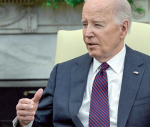You are here
Relations that may be improving soon
Aug 29,2017 - Last updated at Aug 29,2017
Jordan and Syria could be opening a new chapter in relations in the near future, following an indirect exchange of positive remarks about each other by officials in both countries.
Special adviser to President Bashar Assad, Butheina Sha’aban, told a pro-Syria news agency last week that relations with Jordan are destined to improve.
She later told a visiting Jordanian non-governmental delegation that Damascus is ready to respond to positive steps that the Amman government may take.
A senior Syrian party official was also quoted as saying that his country is looking to the future and not the past in terms of relations with Jordan.
Responding indirectly to these statements, government spokesman Mohammad Al Momani told local television on Friday that “our relations with the Syrian state and regime are going in the right direction”.
He added that his remarks were “a very important message that everyone should hear”.
These positive statements pointed to willingness by both sides to turn the page on what was often a tense and distrustful relationship that began with the outbreak of the Syrian uprising in March 2011.
And while the process of normalisation of relations is yet to start, and may take a number of confidence-building measures before achieving its goals, it should not come as a surprise that Jordan may be the first regional country to move closer to Damascus.
Since the Syrian conflict erupted, Amman chose to follow an independent course, and adjusted its position in response to developing geopolitical realities.
But the fundamentals of that policy remained firm and unchanged: Jordan always insisted on preserving the territorial integrity of Syria, while calling for a political solution to the crisis.
It also underlined the importance of preserving Syria’s state institutions in order to prevent the country’s collapse and fragmentation.
Unlike other regional players, it never called for Assad’s removal as a condition to ending the crisis. That decision was left to the Syrian people. But that did not prevent it from criticising the government’s response to the popular uprising and from condemning atrocities committed by all sides.
And while Syrian officials, including Assad, attacked Jordan on many occasions, accusing it of training and funding rebels and of allowing “terrorist fighters” to enter Syria, Amman’s response was always prudent and diplomatic.
Jordan was among the few countries that kept its embassy in
Damascus open while allowing the Syrian embassy in Amman to function. And only when the Syrian army lost control of the border crossing between the two countries did Jordan close it from its side.
Moreover, despite the huge economic burden, Jordan continued to receive hundreds of thousands of Syrian refugees, allowing them to work and benefit from health and education services.
But while keeping communication channels open with the Syrian opposition, Jordan’s position was always clear in calling for a negotiated political solution to the Syrian crisis.
It backed the Geneva process and joined the Astana technical talks as an observer.
It played a crucial role in the fight against Daesh in Syria, especially in preventing the terrorist group from expanding its presence into southern Syria.
Jordan was quick to welcome the enhanced Russian role in Syria and viewed Moscow as a capable player that could preserve the country from fragmentation and influence the Syrian regime’s position towards accepting a political settlement.
More importantly, King Abdullah was able to convince Russian President Vladimir Putin to exclude southern Syria from major military operations, and allow Amman to use its influence over moderate rebel groups in the south to focus their efforts on fighting Daesh.
These efforts were last month translated into the trilateral agreement to enforce a de-escalation zone in most of southern Syria.
The truce there has held so far and allowed the Syrian government to begin negotiations with rebel groups in Daraa, which should result in reconciliation and a peaceful end to the conflict in the south.
More importantly, the pacification of the south should allow the Syrian government to take control of the border crossing with Jordan, resulting in the opening of this vital link soon. It should enable the repatriation of Syrian refugees in the near future and the beginning of reconstruction.
Throughout the past seven years, Amman and Damascus kept some channels of communication open, at least at the military and intelligence levels.
Both countries have a shared interest in preventing southern Syria from falling into the hands of Islamist militant groups.
For Jordan, the key objective was to secure its long border with Syria. This is why the return of the Syrian army to the border is viewed positively by Amman.
And finally, Jordan was quick to read the changing political mood in many Western capitals regarding Assad’s fate.
Its initial policy towards the Syrian crisis has given it flexibility, and while a political solution to the conflict has a long way to go, normal relationship between the two countries may give much-needed boost to that process.
The writer is a journalist and political commentator based in Amman.













